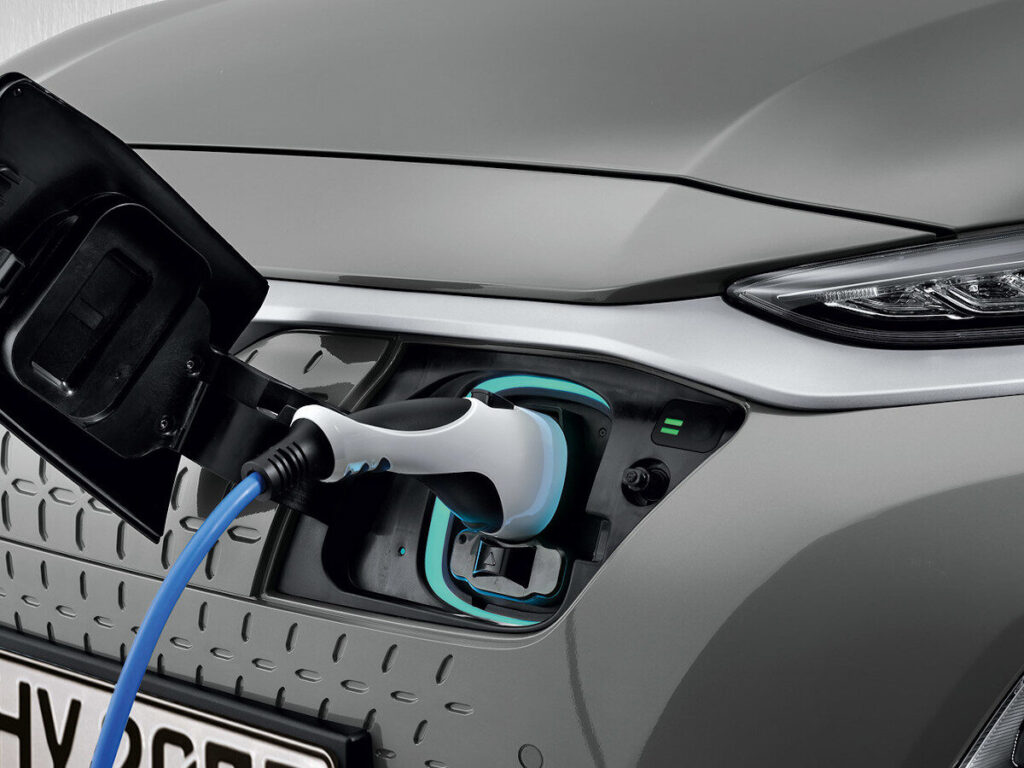Since the beginning of 2020, car buyers should actually be able to secure a higher bonus when they buy an electric car or a plug-in hybrid vehicle. But because the federal government and the EU are delaying the higher environmental bonus, the old rates still apply. The first automobile manufacturers are now reacting and increasing the bonus payments of their own accord. For one simple reason.

TABLE OF CONTENTS
1 Up to 6,000 euros environmental bonus – but when?
2 Hyundai
3 Kia
4th Nissan
5 Renault
6th These were the best-selling e-cars in Germany in 2019
In November 2019, representatives of the auto industry and the federal government agreed at a car summit in the Chancellery to reward buyers of electric cars with a higher purchase premium . Around two billion euros are available from the federal budget for the increased environmental bonus by 2025 .
UP TO 6,000 EUROS ENVIRONMENTAL BONUS – BUT WHEN?
Instead of 4,000 euros for the purchase of an electric car and 3,000 euros for the purchase of a plug-in hybrid model, new rates should actually apply from 2020. At the top, a premium of up to 6,000 euros is possible for cars without a combustion engine, and up to 4,500 euros for a plug-in hybrid. The automobile manufacturer and the state each take on 50 percent of this. But nobody really knows when the directive on the promotion of electrically powered vehicles will actually be changed. It could be today, a week from now, or much later.
And that has consequences. Because the corresponding approval is stuck somewhere between Germany and the EU, Germans are currently buying fewer e-cars. Hyundai speaks, for example, of a “noticeable reluctance to buy”. This is understandable from the customer’s point of view. Nobody wants to miss out on the higher funding. That is why the first automobile manufacturers have now started to grant higher discounts on their own initiative when buying an e-car. Renault, Nissan, Hyundai and, most recently, Kia have announced that they will reward e-car buyers more intensely than before. Also in order not to miss your own sales targets.
HYUNDAI
Hyundai announced that it would increase the manufacturer’s share of the environmental bonus when purchasing a Kona Elektro or Ioniq Elektro from 2,000 to 6,000 euros. So there is a whopping 8,000 euros purchase premium for these models. When buying an Ioniq plug-in hybrid model, Hyundai pays a total of 5,000 euros and on top of that, the Federal Office of Economics and Export Control (BAFA) offers 1,500 euros – a total of 6,500 euros.
The prices minus the environmental bonuses granted by Hyundai and the state environmental bonus to be applied for by the customer start at 26,400 euros for a Hyundai Kona Elektro, for an Ioniq Elektro at 26,900 euros and for a Hyundai Ioniq plug-in hybrid at 25,500 euros.
Also interesting: For the Kona Elektro from model year 2020 there is currently a warranty of eight instead of the regular five years – with no mileage limit. Only the battery is limited to 160,000 kilometers.
KIA
The sister brand of Hyundai, Kia, of course, does not allow the butter to be removed from the bread and, for its part, offers an increased environmental bonus. However, only for two models without a combustion engine. Anyone who buys the Kia Stromer e-Niro or e-Soul receives the new purchase bonus of 6,000 euros today. Kia pays 4,000 euros, from BAFA after application 2,000 euros on top. If the increase in the environmental bonus is not implemented, the Kia special campaign ends on June 30th at the latest.
The Kia e-niro with 39.2 kWh battery currently costs at least 35,290 euros. The more powerful model with a 64 kWh battery is available at a list price from 39,090 kWh. You can buy the Kia e-Soul at a price from 33,990 euros (39.2 kWh) or 37,790 euros (64 kWh).
NISSAN
Anyone interested in a Nissan electric car can look forward to a switch bonus of up to 8,000 euros. This amount beckons when buying a Nissan Leaf (battery with 40 kWh) and
Nissan Leaf e + (62 kWh). Nissan itself pays 6,000 euros, the state adds 2,000 euros on application to BAFA. The electric box van is also cheaper. In addition to the 2,000 euros state environmental bonus , Nissan guarantees a further 4,570 euros for a purchase.
You can currently secure the Nissan Leaf at a base price of 36,800 euros. The Nissan Leaf e + model costs at least 44,700 euros.
RENAULT
The French car manufacturer Renault is also increasing its environmental bonus payments for three models. “The delay in the state premium is no longer acceptable to us,” said Renault Germany boss Uwe Hochgeschurtz recently. Buyers of a new Renault electric model will therefore receive an environmental bonus increased to 6,000 euros with immediate effect. It is also composed of a discount granted by Renault of 4,000 euros and 2,000 euros of government funding. This bonus model also applies to Renault until the increased BAFA bonus officially comes into force.
The new bonus scheme also applies to the Renault ZOE. The electric car was registered almost 9,500 times in 2019, making it the best-selling electric car in Germany. You can also get the electric delivery van Renault Kangoo ZE and the panel van Renault Master ZE at more favorable conditions. Optionally including battery or with monthly battery rental.
In the cheapest case, the Renault Zoe can be had for 29,990 euros – with a 41 kWh battery. With a 52 kWh battery you have to pay at least 31,990 euros. If you decide to rent a battery, the base prices of the two models drop to 21,900 euros and 23,900 euros, respectively. Depending on the annual mileage, you then have to pay between 74 and 124 euros per month extra for renting the e-car battery.
If you want to secure the Renault Kangoo ZE, you pay at least 35,604.80 euros including the battery. With battery rental, at least 24,775.80 euros are due. Added to this are between 69.02 and 116.62 euros per month, depending on the annual mileage. The entry-level price for the Renault Master ZE is 71,281 euros – only with the purchase of a battery.
THESE WERE THE BEST-SELLING E-CARS IN GERMANY IN 2019
If you are interested in which electric cars were the most popular in Germany in 2019 , you should not miss our evaluation on this topic.


